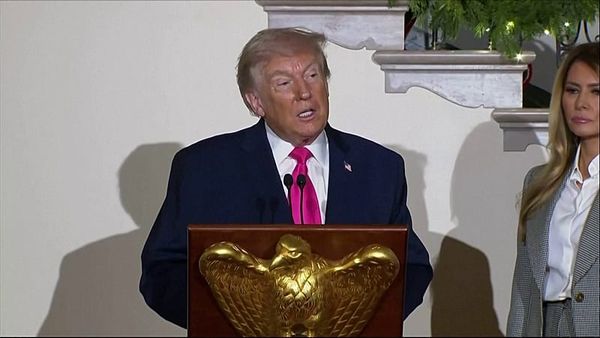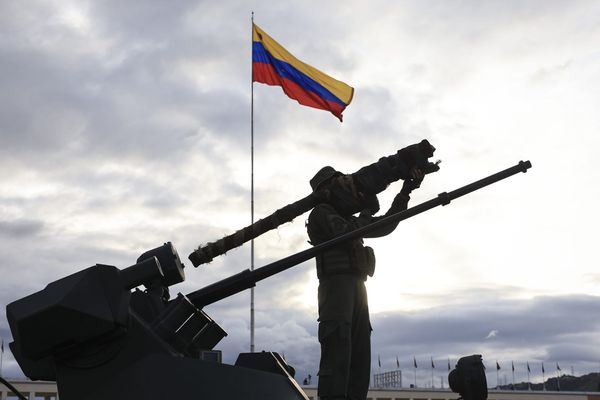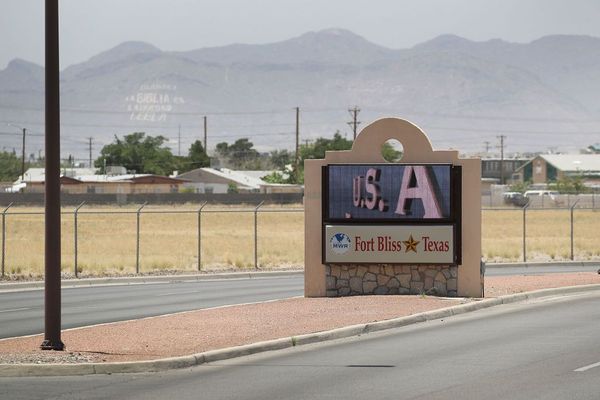
The US senator Lindsey Graham, a close ally of Donald Trump, is expected to brief European leaders on Thursday in Antalya on his plans to push through Congress sanctions designed to devastate the Russian economy if Vladimir Putin does not show a willingness to negotiate the future of Ukraine in good faith.
Graham is due to meet European foreign ministers, including the UK foreign secretary, David Lammy, in Turkey where they had gathered on Wednesday for a long-scheduled informal two-day Nato meeting.
The Europeans have been pinning their hopes on the US sanctions as the most effective way to persuade Putin he should negotiate a peace deal with Volodymyr Zelenskyy.
Putin at the weekend had called for direct negotiations between Russia and Ukraine. Zelenskyy then called Putin’s bluff by challenging him to meet in Istanbul in person for peace talks, but late on Wednesday, the Kremlin left the Russian leader off its delegation for the talks.
If Putin does not turn up in Istanbul, European leaders will believe their strategy to persuade the US Congress to trigger the Graham sanctions package will be back on course. Graham has described them as bone-crushing sanctions.
Western diplomats said they believe Trump may give Congress the political latitude to pass the sanctions without the president himself explicitly endorsing them. The US secretary of state, Marco Rubio, will also be at the Nato meeting and then fly to Istanbul.
But frustrated western diplomats said that Trump has been continuing to put the most positive construction possible on Putin’s actions, even if for the first time they are picking up signals other figures in the Trump administration in private now take a more critical view of the Russian leader’s stalling, but will not articulate this in public until they are clearer how Trump decides to handle Putin. Trump has mused he may be being played by Putin, but has not wanted to break with him.
The European Union has itself prepared a 17th round of sanctions against Russia, mainly focused on Russia’s shadow fleet of oil tankers, but European diplomats believe the reality is that it is only Graham’s sanctions package that might weaken the Russian economy enough to affect the state of the conflict. Graham arrived in Turkey on Tuesday, partly to assess the Syrian crisis.
The already published Graham sanctions bill includes a 500% tariff on imports into the US from countries that buy Russian oil, petroleum products, natural gas or uranium.
A difficulty with the proposal, if implemented as written, is that they might plunge the US straight back into a tariff war with China and India, the two countries that import most Russian energy. In theory some European countries such as Spain might also be affected since Madrid imports Russian liquified natural gas. Other sanctions in the Graham package would prohibit US citizens from buying Russian sovereign debt.
Graham has said he has the bipartisan votes required in the Congress to pass the new laws. Trump, while hinting at his frustration with Putin, has not set a clear benchmark for what would trigger an administration endorsement of Graham’s package.
The European diplomats admit they were blindsided when Trump at the weekend backed the Putin proposal for peace talks in Istanbul, dropping the precondition of a 30-day ceasefire as a prelude to talks, a ceasefire that initially had been proposed by Trump himself.
European foreign ministers are so far not expecting to be represented at the Istanbul meeting, but the UK national security adviser, Jonathan Powell, is expected to travel to Turkey to provide background advice on how Zelenskyy should handle what is still an unpredictable meeting in an unclear format. Powell’s consistent advice is not to do anything that alienates Trump, but encourage the US president to realise that Putin is the obstacle to peace.







